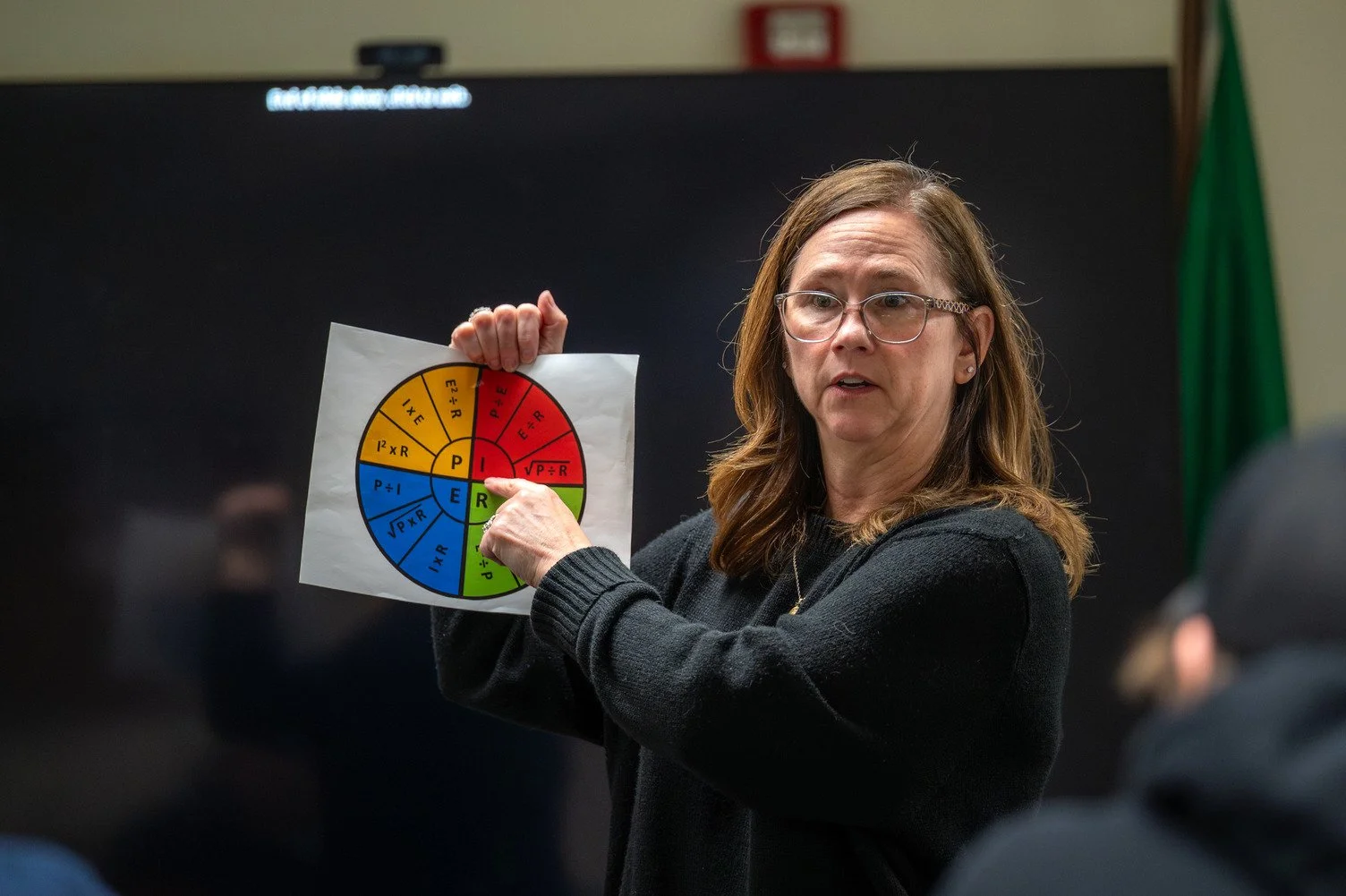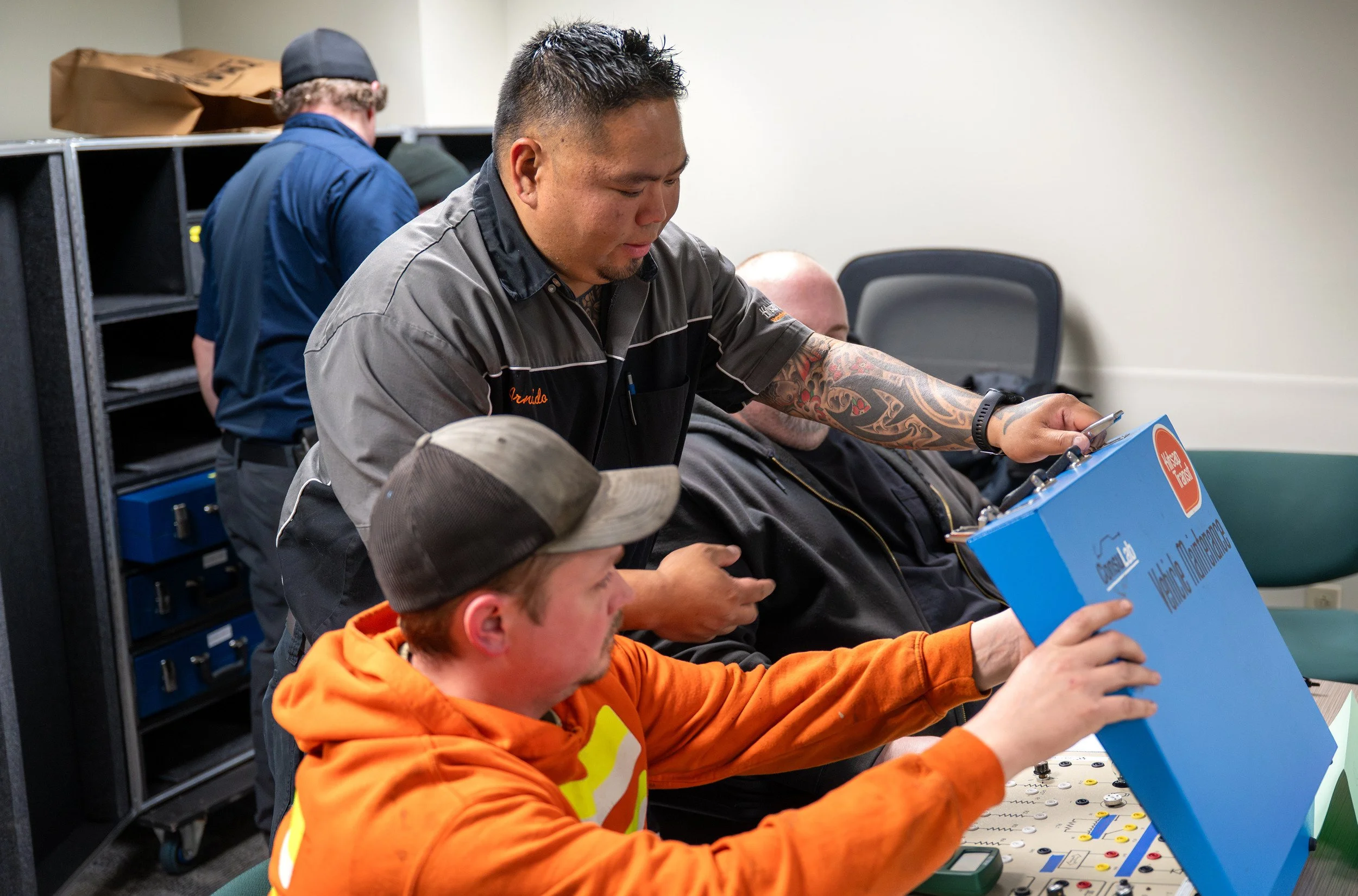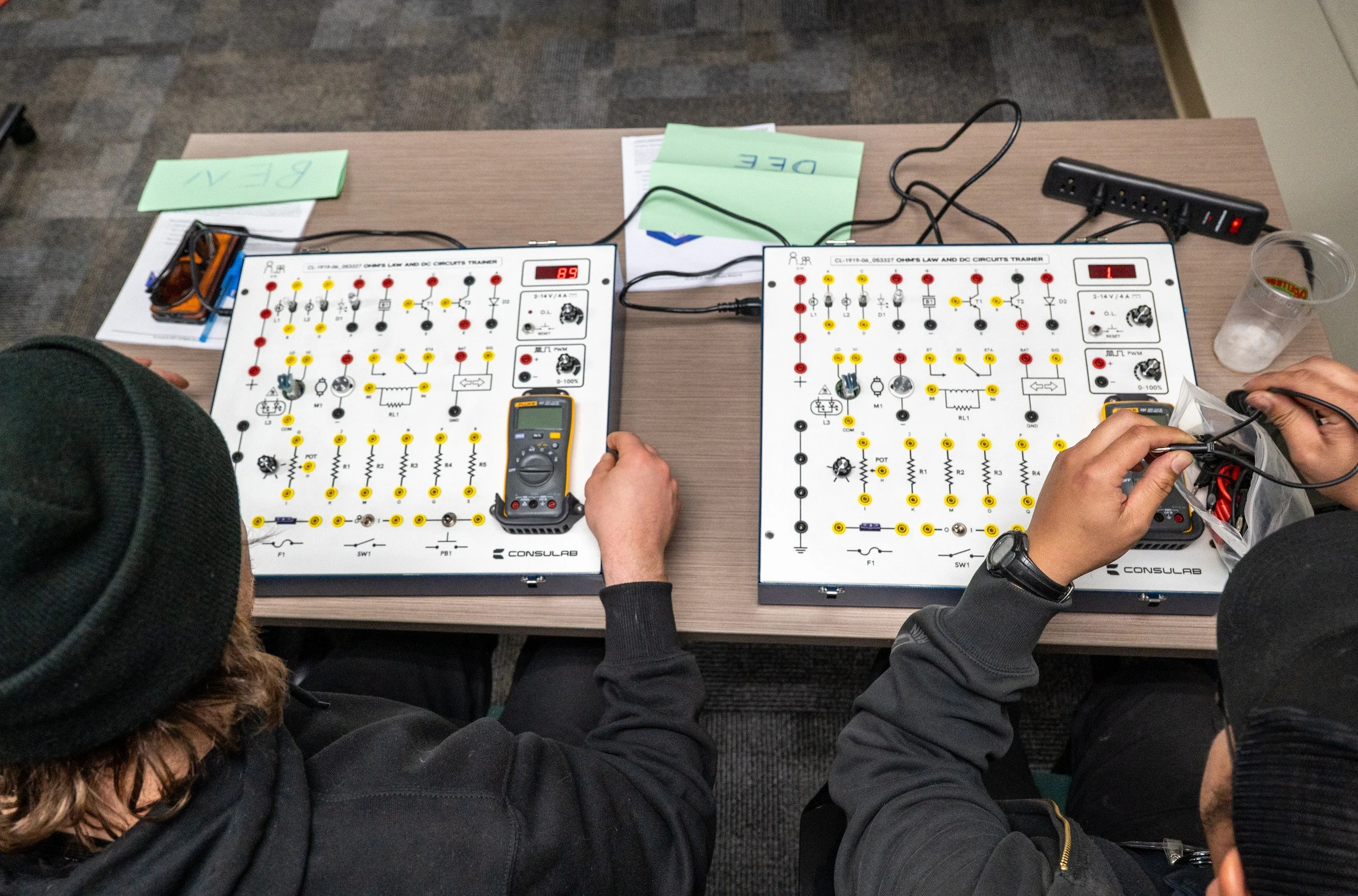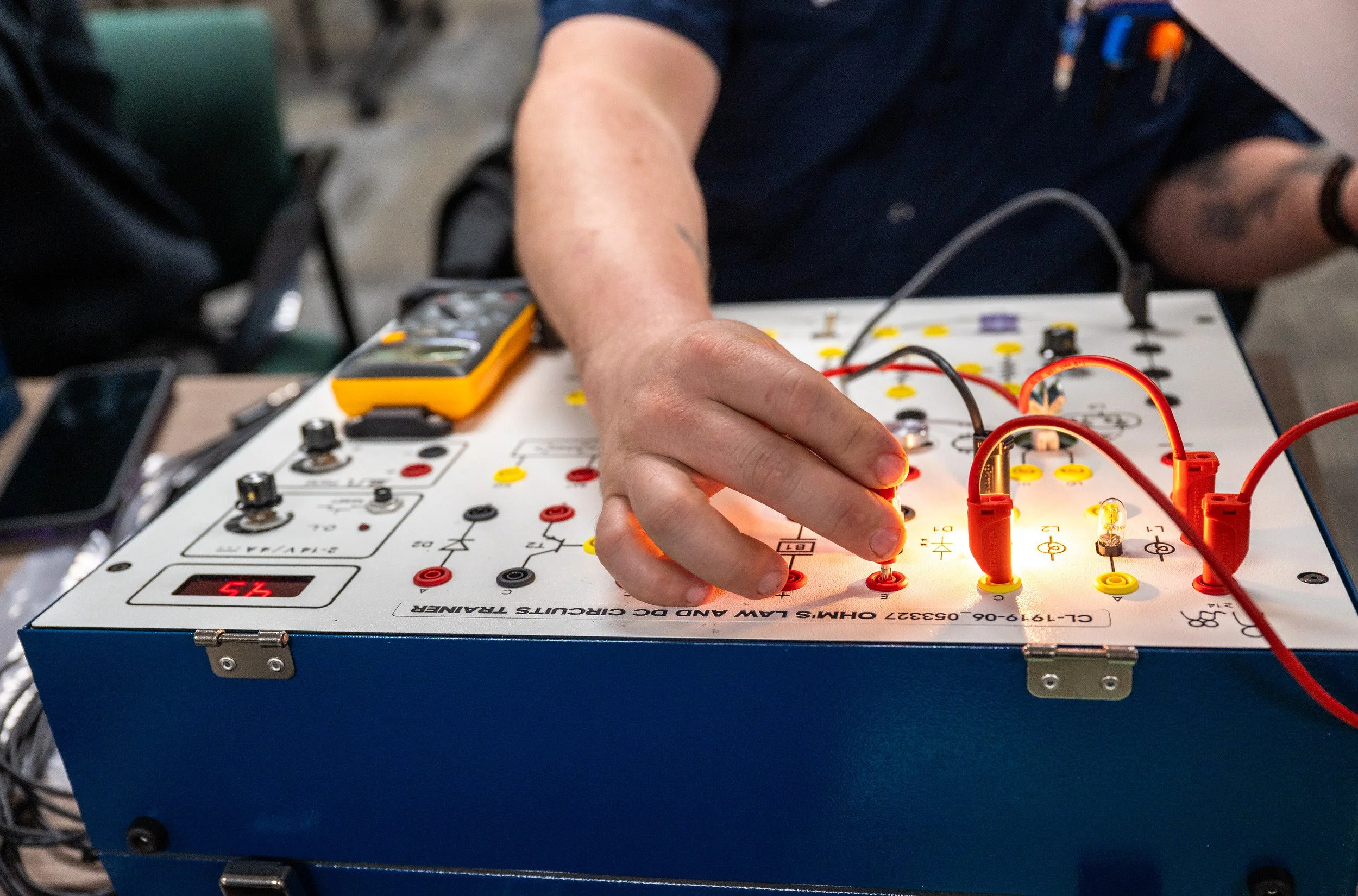KT partners with Olympic College on electrical theory training program for mechanics
Repairing buses is difficult. Repairing electric buses is potentially fatal.
That’s why Kitsap Transit is partnering with Olympic College to train our mechanics in the foundations of electrical theory—knowledge they’ll need to safely diagnose and repair KT’s growing electric fleet.
“If [technicians] don’t have their head wrapped around low voltage, we can’t put them on high voltage and be 100% confident they’ll go home to their families,” said Arnaldo Bustamante Jr., one of Kitsap Transit’s vehicle maintenance supervisors.
Bustamante oversees high-voltage training for Kitsap Transit’s technicians. Before tackling advanced concepts and working with high voltage, he wanted every KT mechanic to be trained in low-voltage basics.
Last year, Bustamante reached out to Olympic College (OC) to see if they could partner on an introductory training course that would benefit Kitsap Transit’s mechanics and the general public. OC, interested in setting up a program of its own, agreed.
Many community and technical colleges are starting to offer electric vehicle maintenance programs, said Wendy Fox, OC’s Dean of Workforce & Economic Development. But setting up those kinds of programs can be expensive.
Kitsap Transit provided the classroom at Gateway Center in West Bremerton as part of the partnership, while OC hired an expert to teach the class. The pilot class lets Kitsap Transit train its marine and diesel mechanics while allowing OC to get data it needs to prove the course is worth a full-time program.
“This partnership is really the best of both worlds,” Fox said.
Fox conceptualized the training as a “bridge” for highly skilled diesel mechanics who want to familiarize themselves with electric vehicles, and more specifically, electric buses.
“This is not a canned program. It was written specifically for mechanics who want to be skilled at electric vehicle maintenance,” Fox said.
Kitsap Transit mechanics need a wide range of knowledge to work effectively on the many different vehicles in KT’s fleet. Vans and ACCESS buses typically generate 12 and 24 volts from their respective batteries, while the electric Gillig coaches can generate up to 800.
“It’s a huge gap, a big difference,” said DJ Helms, a Kitsap Transit maintenance technician.
Helms was a member of the first-ever class, which ran for 10 weeks from April to June, along with several KT diesel mechanics, marine mechanics, and employees of a private auto shop.
Helms said if a mechanic makes a mistake on a smaller battery, they could blow a fuse or weld something to it. But that same mistake on a battery-electric bus could prove fatal.
“It's serious, life or death, you know,” Helms said. “[The training is] to get everybody up on the same page; It's really good for that reason.”
Several KT mechanics are already enrolled for the next class, which begins in the fall. That course will have some changes; the pilot class focused on electrical theory more generally, while future classes will focus more specifically on how it relates to vehicle maintenance.
Olympic College's ultimate goal is to establish an electric-vehicle maintenance program, of which this class would be one of several. Students would graduate with an “Electric Vehicle Technician” certificate. A private automotive repair business interested in getting their mechanics trained on low voltage has already filled up the first few classes.
“To have a partner in Kitsap Transit – who has the training facility and the space and is willing to partner with Olympic College – it was really a gift to be able to say, let's see if there is demand,” Fox said.
For Bustamante, the training provides peace of mind that his mechanics “know how to read a meter and they're going to read it safely when they test the system.”
“At the end of the day, we want all of our technicians to go home to their families safely,” he said.




